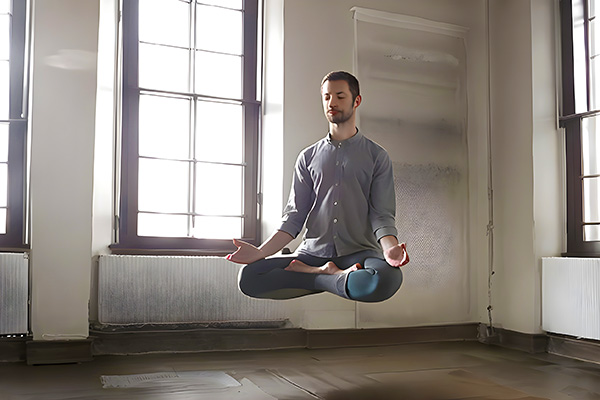taoism
The Mystical Phenomenon Of Levitation
 After seeing with my own eyes my yoga teacher levitate many years ago, I am convinced that levitation is not only possible, but that anyone can achieve it through a dedicated spiritual practice.
After seeing with my own eyes my yoga teacher levitate many years ago, I am convinced that levitation is not only possible, but that anyone can achieve it through a dedicated spiritual practice.
I used to attend weekly yoga classes led by a wonderful teacher who was 76 years “young” at the time. She was vibrant and lithe enough to make us younger ones look awkward by comparison.
One evening she invited her advanced students to watch a levitation demonstration. I must admit that I was a little skeptical and did not really know what to expect, but I am always open to new spiritual experiences.
She gave a talk before the demonstration, but I don’t remember much of what she told us. What I do remember very vividly is the incredible moment when she actually floated from her horizontal position on the floor. In a trance-like state, she rose gently and was suspended about a foot (30 centimeters) in the air.
Years later, I had another unusual levitation experience. After a wonderful week-long workshop at the Arthur Findlay College of Spiritualism and Psychic Sciences in Essex, England, a large group of teachers and students from the various classes gathered for a group meditation. The powerful energy in the room that evening was indescribable.
Comparison Poisons The Heart, Mind And Soul
 When we are going through difficult times, we tend to compare our struggles and suffering to the lives of others and measure ourselves by their perceived happiness, joy and success.
When we are going through difficult times, we tend to compare our struggles and suffering to the lives of others and measure ourselves by their perceived happiness, joy and success.
We often do this these days by comparing our own lives to what others post on social media. Then we judge and mentally torture ourselves for not living up to other people’s highlight reels of happiness and good fortune.
Sure, it is sometimes beneficial to self-reflect and strive for more based on the examples of others who serve as our role models. However, when we indiscriminately compare our own life journey to everyone else’s, we end up diminishing our own uniqueness and value.
While social comparison can motivate us to improve and grow, it can also lead to toxic self-judgment, envy, resentment, and extreme unhappiness. Constantly focusing on the highlights of other people’s lives quickly becomes toxic and self-destructive.
However, this tendency is not a character flaw in some of us. In fact, it is a natural evolutionary instinct that we all have. Our ancestors survived by living in social groups. Our tendency to compare ourselves to others is therefore a very common human trait, rooted in our evolution as a species.